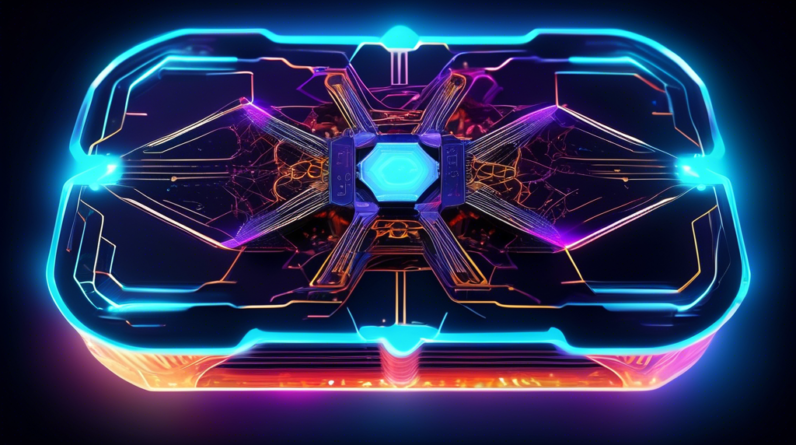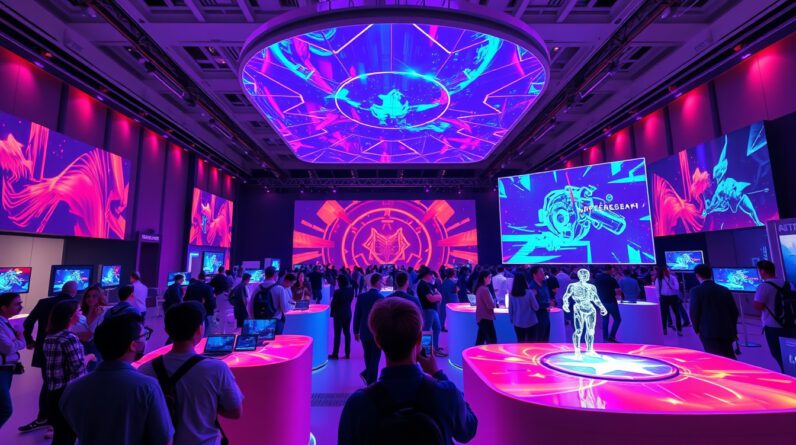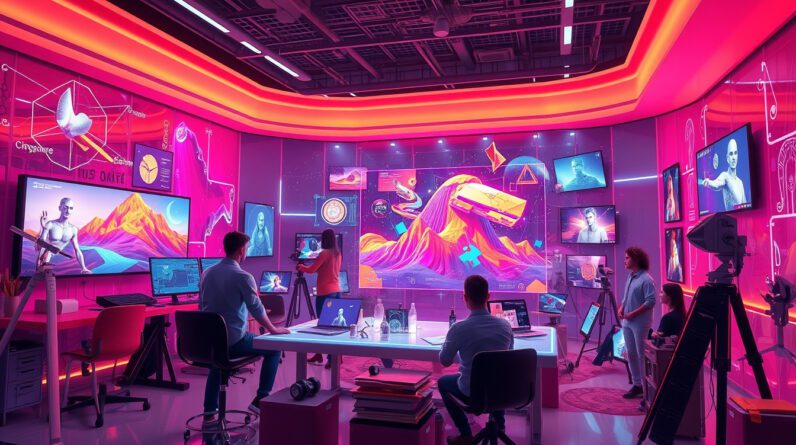
Revolutionizing Graphics Performance with Artificial Intelligence
PowerColor, a leading manufacturer of graphics cards, has announced the integration of Edge AI technology into its latest line of GPUs. This groundbreaking development marks a significant leap forward in graphics processing, promising enhanced efficiency, performance, and user experience.
Understanding Edge AI
Edge AI, short for Edge Artificial Intelligence, brings the power of AI processing directly to the device, in this case, the graphics card. Unlike traditional cloud-based AI, which relies on data centers for processing, Edge AI operates locally, eliminating latency issues and enabling real-time decision-making.
How Edge AI Enhances Graphics Cards
By incorporating Edge AI into its GPUs, PowerColor aims to revolutionize several key aspects of graphics performance:
1. Intelligent Resource Allocation
Edge AI algorithms analyze real-time GPU usage patterns, intelligently allocating resources like clock speeds, voltage, and memory bandwidth based on the specific demands of the application. This dynamic optimization ensures maximum performance without unnecessary power consumption, resulting in a smoother and more efficient gaming or creative workflow.
2. Enhanced Image Upscaling and Resolution
One of the most exciting applications of Edge AI in graphics cards is its ability to upscale image resolution with remarkable clarity and detail. By training AI models on vast datasets of high-resolution images, Edge AI can intelligently predict and fill in missing pixels, delivering stunning visuals, even on lower-resolution displays.
3. Real-Time Ray Tracing Optimization
Ray tracing, a rendering technique that simulates the physical behavior of light, has revolutionized gaming realism. However, it’s computationally intensive. Edge AI can optimize ray tracing by predicting light paths and focusing processing power on areas that require the most detail, enhancing visual fidelity while maintaining smooth frame rates.
4. Reduced Latency and Input Lag
Edge AI’s ability to process data locally translates to reduced latency in gaming and other graphics-intensive applications. By analyzing user inputs and predicting actions, Edge AI can pre-emptively render frames, creating a more responsive and immersive experience.
5. Adaptive Sync and Frame Rate Optimization
Edge AI can dynamically adjust refresh rates based on the content being displayed, ensuring a tear-free and smooth visual experience. This adaptive sync technology, powered by Edge AI, eliminates screen tearing and stuttering, common issues in graphics rendering.
PowerColor’s Edge AI Implementation
While specific details about PowerColor’s Edge AI implementation remain under wraps, industry insiders speculate that the company is leveraging a combination of hardware and software solutions. Custom-designed AI accelerators integrated into the GPU, alongside optimized software drivers and APIs, are believed to form the backbone of PowerColor’s Edge AI technology.
The Future of Graphics with Edge AI
PowerColor’s foray into Edge AI marks a pivotal moment in the evolution of graphics cards. As AI technology continues to advance, we can expect even more innovative applications in the realm of visual computing. Some potential future developments include:
1. AI-Powered Game Design and Development
Edge AI could empower game developers with tools to create more realistic and immersive gaming experiences. From generating lifelike NPCs with complex behaviors to procedurally generating vast and detailed game worlds, the possibilities are endless.
2. Personalized Graphics Settings
Imagine a graphics card that automatically adjusts its settings based on your individual preferences and the demands of the application you’re using. Edge AI could make this a reality, tailoring the graphics experience to each user’s needs.
3. Advanced Content Creation Tools
Edge AI has the potential to revolutionize content creation workflows for artists, designers, and video editors. From AI-assisted image editing and video processing to real-time 3D modeling and animation, Edge AI could unlock new levels of creativity and productivity.
PowerColor’s Commitment to Innovation
PowerColor has a long-standing reputation for pushing the boundaries of graphics technology. The introduction of Edge AI into its GPUs is a testament to the company’s commitment to delivering cutting-edge solutions that enhance the user experience. As the gaming and graphics industries continue to evolve at a rapid pace, PowerColor’s embrace of Edge AI positions the company at the forefront of this exciting technological revolution.
Conclusion
The integration of Edge AI into graphics cards represents a paradigm shift in the way we experience and interact with visual computing. By harnessing the power of AI at the edge, PowerColor is ushering in a new era of graphics performance, efficiency, and user experience. As Edge AI technology matures, we can expect to see even more groundbreaking applications that will redefine the possibilities of visual computing in the years to come.




